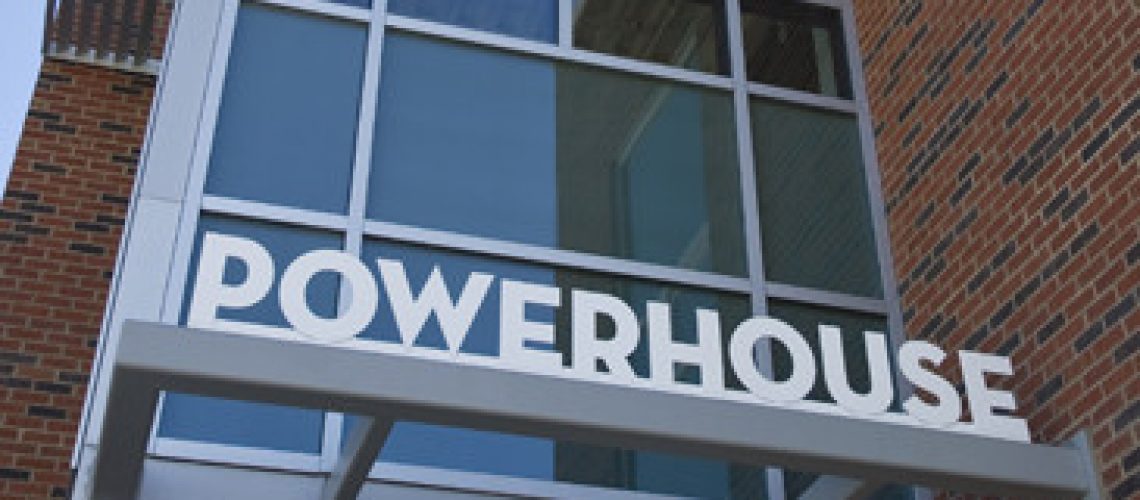Fort Collins’ risk became a Powerhouse in energy science

Editor’s Note: Dr. Bryan Willson is the Director of the Energy Institute, a Professor of Mechanical Engineering at CSU, and the founder of CSUs Engines and Energy Conversion Lab. In these roles, he has worked for over 25 years to develop large-scale solutions for global energy needs with a significant focus on reducing environmental impacts from natural gas production and use.
Twenty-five-years ago, the city of Fort Collins took a chance on energy innovation, and on me. I was an assistant professor in mechanical engineering at Colorado State University, and I was looking for a space to start CSU’s Engines and Energy Conversions Lab (EECL). I wanted to find a place where my students, colleagues, and I could build and test clean energy solutions at large scale.
I found that in an unlikely space — the decommissioned coal-fired municipal power plant on the north edge of downtown Fort Collins. This 35,000-square-foot facility had the heavy structure and space we needed. Fort Collins even then in 1992 was willing to imagine the space as something more than the abandoned and deteriorating building it was at the time, and take a risk alongside us as we worked to build what is now the Powerhouse Energy Campus. Our continuing partnership with the city of Fort Collins is truly unique in town/gown relationships across the U.S.
Our earliest work focused on reducing emissions from the massive engines used to power our natural gas pipeline system. Now, almost every engine on the pipeline uses some technology we helped to create, and every year this reduces pollution (NOx emissions) in the U.S. by the same amount as removing 150 million automobiles from the highway. Later, we became interested in the future of the electric grid, and once again the city of Fort Collins stepped up. Leaders allowed us to connect our experimental grid laboratory to the city’s grid, which incurred some reliability risk but ultimately helped to grow local companies like Spirae and allowed the development of new electric grid solutions being implemented in the U.S., on the national grid in Denmark, and now in sub-Saharan Africa.
We have also sought to improve access to energy among the world’s poorest populations. Envirofit International, a company we launched from the lab in 2003, is now the largest manufacturer of clean cookstoves for the developing world. Factor(e) Ventures, a company we launched in 2013, has helped to launch 15 companies that use technology to improve the human condition in the developing world.
In 2014, we completed a 65,000 square-foot addition to the building; now our 100,000-square foot facility is one of the largest free-standing energy research facilities at any university. The new space allowed us to expand from just developing to technology to addressing the entire energy spectrum; technology, energy policy, human behavior, health, entrepreneurship and access to energy in the developing world. With this expanded focus we changed our name to the Powerhouse Energy Campus to reflect the broad interdisciplinary and collaborative nature of the energy work being done. Powerhouse now houses more than 30 faculty and research scientists, 15 energy companies, and more than 150 graduate and undergraduate students. On most days, there are more than 250 people working in the building to: 1) do great energy science, 2) turn that science into real-world solutions, and 3) figure out how to get those solutions implemented at large scale. That’s cool.
This interdisciplinary nature of the Powerhouse is not an afterthought, it is by design. The collaborative ecosystem of researchers, professors, engineers, writers, students, established companies and start-up companies extends to the greater Fort Collins community; this unique partnership on clean energy led to the inclusion of Fort Collins in the Smithsonian Institution’s “Places of Invention” exhibit in Washington D.C.
As we celebrate our 25th anniversary, I want to use this moment to thank the Fort Collins community for taking a risk all those years ago. This is as much a celebration of our achievements as the Powerhouse Energy Campus as it is a celebration of the unique commitment and support the Fort Collins community has shown for energy innovation.

Bryan Willson
Executive Director of the Energy Institute